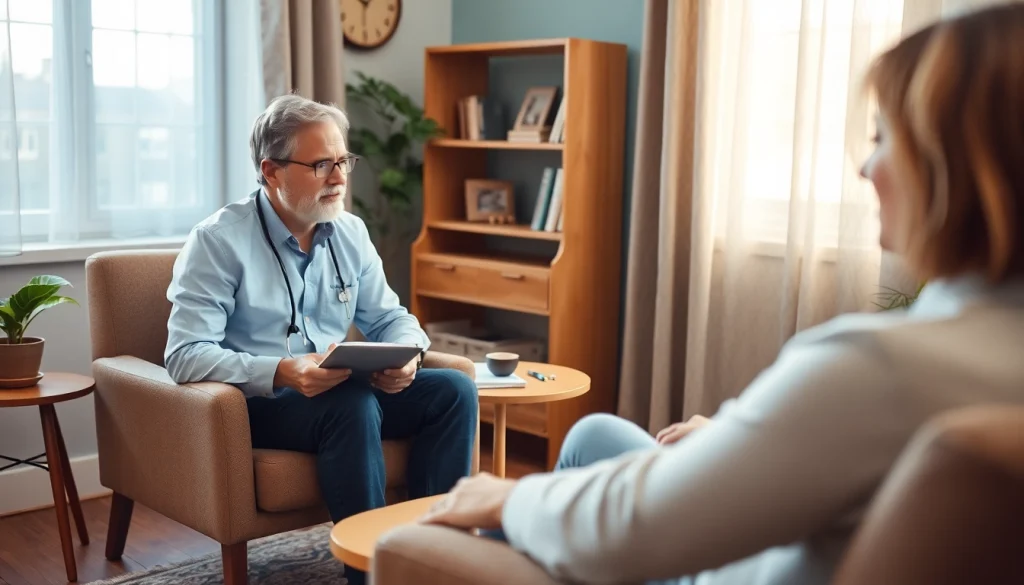Understanding the Role of an Attachment Theory Specialist in Healing Relationships

What is Attachment Theory?
Attachment theory is a psychological framework that explores the relationships and bonds formed between individuals, particularly focusing on the emotional ties developed during childhood. Initiated by psychoanalyst John Bowlby in the mid-20th century, this theory emphasizes the importance of early caregiving experiences and their profound impact on later emotional and relational functioning.
Origins and Key Concepts
The origins of attachment theory stem from Bowlby’s observation of the effects of separation between infants and their primary caregivers. He proposed that children are biologically predisposed to develop attachments, which serve as a survival mechanism, ensuring that they stay close to their caregivers for protection and nourishment. In conjunction with Bowlby, Mary Ainsworth expanded this theory by introducing the concept of attachment styles through her innovative “Strange Situation” experiment, which highlighted the different behaviors exhibited by children when faced with the presence and absence of their caregiver.
The key concepts within attachment theory include:
- Secure Attachment: Developed when caregivers are responsive and sensitive, leading children to feel safe and confident in exploring the world.
- Avoidant Attachment: Arises when caregivers are consistently unresponsive, causing children to minimize emotional expression and seek independence.
- Ambivalent (or Resistant) Attachment: Forms from inconsistent caregiving, resulting in anxiety and dependence, as children become unsure about whether their needs will be met.
- Disorganized Attachment: Develops in contexts of neglect or abuse, leading to a lack of a coherent attachment strategy.
Attachment Styles Explained
Attachment styles impact individuals throughout their lives, influencing how they connect with others, manage emotions, and respond to relationship stresses. Here’s a more detailed exploration of each style:
Secure Attachment
Individuals with a secure attachment style typically have positive views of themselves and their partners. They feel comfortable with intimacy and are effective communicators in relationships, often resulting in stable and healthy connections. This style is often characterized by trust, compassion, and a solid sense of self.
Avoidant Attachment
People with avoidant attachment tend to value independence and self-sufficiency but might struggle with intimacy. They often keep their distance from partners, leading to challenges in forming deep, emotional bonds. They may appear detached or emotionally unavailable during relationship conflicts.
Ambivalent Attachment
Those with ambivalent attachment may experience significant anxiety and uncertainty in relationships. They often seek closeness but can be overly dependent on their partners for emotional support, resulting in turmoil during conflicts. These individuals may oscillate between seeking intimacy and fearing abandonment.
Disorganized Attachment
This style manifests the most severe difficulties in relationships. Individuals with a disorganized attachment history may display erratic behaviors and an inability to maintain healthy boundaries. Their relationships may be fraught with confusion, fear, and emotional dysregulation.
Importance of Attachment in Relationships
Understanding attachment theory is crucial for developing healthy relationships. The styles formed during childhood can predict patterns of behavior in adult relationships, affecting everything from communication styles to conflict resolution. Recognizing one’s own attachment style and that of partners can help individuals navigate relationship challenges more effectively.
Roles of an Attachment Theory Specialist
An attachment theory specialist is trained to apply the principles of attachment theory to help individuals and families understand and improve their relational dynamics. These professionals employ various strategies and techniques geared toward fostering secure attachments and addressing attachment-related issues.
Therapeutic Approaches and Modalities
Attachment theory specialists utilize several therapeutic approaches to support individuals in healing attachment wounds. Common modalities include:
Emotionally Focused Therapy (EFT)
A key approach that centers on strengthening emotional bonds between partners. EFT helps couples identify and articulate their emotional needs while fostering responsiveness to one another.
Attachment-based Family Therapy (ABFT)
This model targets the parent-child relationship, helping families communicate more effectively and work through emotional barriers that have arisen due to attachment disruptions.
Trauma-Informed Care
Understanding how trauma impacts attachment is vital for therapy. Specialists consider how past traumas may have altered attachment styles and work to create a safe therapeutic environment that fosters healing.
Effective Techniques for Healing
Effective practices include:
- Mindfulness-Based Interventions: Promoting awareness of emotional responses and fostering self-awareness in interactions.
- Couples Counseling: Helping partners communicate openly about their attachment styles and needs, thereby building understanding and attunement.
- Parental Guidance: Educating parents to recognize their child’s attachment needs and respond appropriately, fostering secure attachment in children.
Training and Credentials Required
Attachment theory specialists typically hold advanced degrees in psychology, counseling, social work, or related fields. Additionally, many pursue specialized training and certifications in attachment-focused therapy modalities. Participation in ongoing professional development, workshops, and conferences is also common, ensuring that these practitioners stay updated on the latest research and methodologies.
Identifying an Effective Attachment Theory Specialist
Finding the right attachment theory specialist can greatly influence the therapeutic experience. Here are key considerations for identifying an effective professional:
What to Look For in a Therapist
When searching for an attachment theory specialist, consider:
- Experience and Specialization: Look for therapists who have substantial experience and training specifically in attachment theory and associated therapies.
- Approachability: A good rapport is vital for therapeutic success. Seek therapists who create a safe, non-judgmental environment for sharing vulnerable feelings.
- Integrated Methods: The specialist should be adept at integrating various therapeutic approaches to best meet individual needs.
Questions to Ask During Consultations
Before selecting a specialist, consider asking the following questions:
- How do you view the role of attachment in your work?
- What specific training do you have in attachment-based therapy?
- Can you describe your approach to handling attachment issues in therapy?
Common Red Flags and Considerations
While seeking therapy, be mindful of red flags, such as:
- Lack of Experience: Avoid therapists who lack specialized training in attachment-related therapies.
- Dismissive Attitude: If a therapist dismisses your concerns or fails to engage empathetically, it may signal a mismatch.
- Overemphasis on One Approach: A lack of flexibility in therapy style can indicate a limited perspective on addressing attachment issues.
Benefits of Attachment-based Therapy
Engaging in attachment-based therapy offers extensive benefits that can profoundly impact individuals and families, fostering healthier relationships and enhancing emotional well-being.
Improving Emotional Connections
Attachment-based therapy can significantly improve emotional connections between individuals. By identifying and addressing past attachment patterns, clients can learn to communicate more openly and respond sensitively to one another’s needs, leading to increased intimacy and trust.
Enhancing Parenting and Family Dynamics
This therapy framework also provides valuable insights for parents, helping them cultivate secure attachments with their children. Parents learn effective strategies to respond to their children’s emotional needs, promoting healthy family dynamics and reducing intergenerational transmission of attachment issues.
Impact on Mental Health and Well-being
Attachment-based therapy has been shown to reduce symptoms of anxiety and depression, fostering greater emotional stability. As clients work through attachment-related challenges, they often report enhanced self-esteem, better coping mechanisms, and a more positive outlook on life.
Finding Qualified Attachment Theory Specialists
Finding suitable attachment theory specialists can be daunting, but utilizing available resources and directories can simplify the process. Here are practical approaches to locating qualified professionals:
Utilizing Online Directories and Resources
Various online directories compile lists of licensed therapists specializing in attachment theory. Websites like Psychology Today and professional organizations often provide search filters to help locate specialists in specific areas and modalities.
Local vs. Remote Therapy Options
With the rise of teletherapy, individuals can now access attachment specialists outside their immediate geographic area. Remote therapy options can increase the likelihood of finding a suitable match, regardless of physical location. Consider both local and remote options to secure the best fit for your therapeutic journey.
Integrating Therapy into Daily Life
Integrating the principles learned through attachment-based therapy into daily life is essential for sustaining progress. Clients can benefit from creating routines that prioritize emotional connection, practicing techniques learned in therapy, and continuing to communicate openly with significant others.






